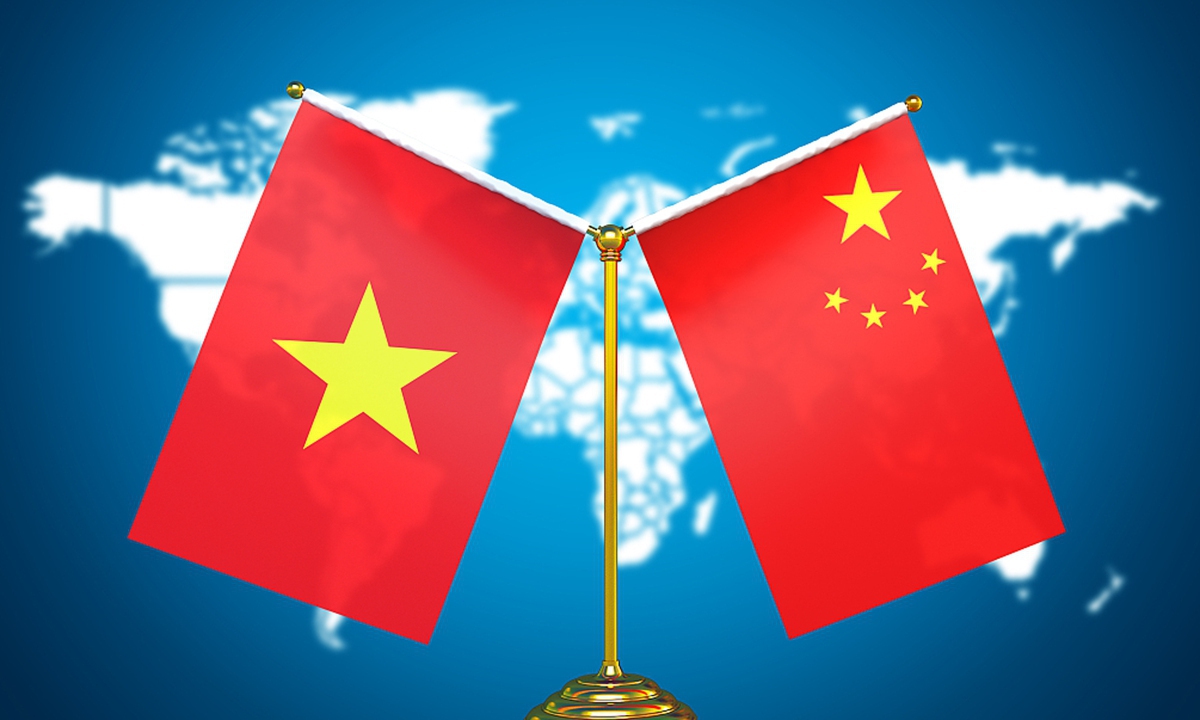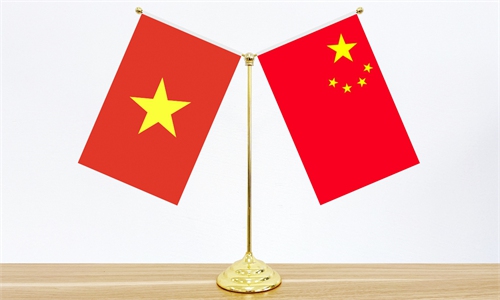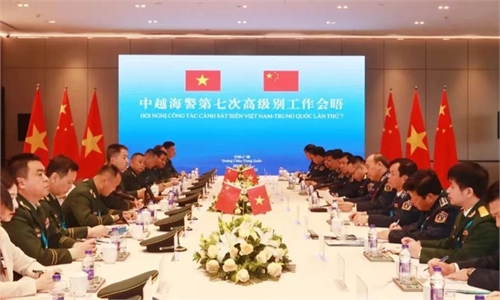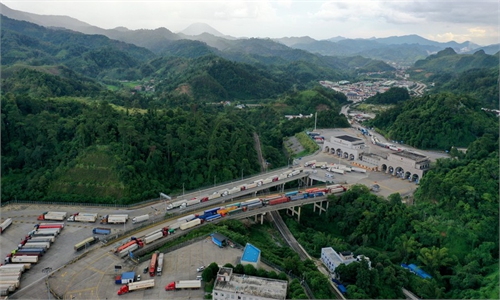China-Vietnam relations have advantages that other bilateral relationships don't have

Photo: VCG
At the invitation of General Secretary of the Communist Party of Vietnam Central Committee Nguyen Phu Trong and State President of the Socialist Republic of Vietnam Vo Van Thuong, General Secretary of the CPC Central Committee and President Xi Jinping will pay a state visit to Vietnam from Tuesday to Wednesday.
China is the first country with which Vietnam has built a comprehensive strategic cooperative partnership, and Vietnam is also the first Southeast Asian country with which China has established this relationship framework. This is the driving force for the two countries' relations to enter a new stage of development, looking toward the future.
Vietnam-China relations have many advantages that other bilateral relationships don't have. Vietnam and China are two neighboring countries, with both land and sea borders. As a result, trade, investment and people-to-people exchanges between the two countries are easier to develop than with other countries that aren't as geographically close.
The two countries share many similarities, creating favorable conditions for cultural exchange activities such as tourism and study abroad programs between their respective populations.
The two countries have similar institutions with the communist party in a leadership role. Therefore, Vietnam and China can exchange and learn from each other's experiences in the development process.
In particular, the relationship between the two parties plays an important role in Vietnam-China relations. It is difficult to find any bilateral relationship that, in addition to the official channels of the state and the people, has a stable, powerful and effective exchange channel like the exchange channel between the Communist Party of Vietnam and the Communist Party of China. Over the past 30 years, during significant events, that relationship has been demonstrated.
Since normalization, overall relations have developed in an upward direction with occasional bumpy periods. There are difficult times, but along with exchanging and promoting the resolution of disagreements, the two sides still maintain stability and carry out annual exchange plans, including meetings and summit conferences. Theoretical discussions, exchanges with party committees and training cooperation programs were all carried out on schedule.
Maintaining stability in the party channel during difficult time in relations has had a positive effect on other areas, preventing disagreements between the two sides from getting out of control.
Over the past 15 years since Vietnam and China established a comprehensive strategic cooperative partnership (2008-2023), Vietnam-China relations have developed extensively in all fields, from politics to economy, culture, security and national defense.
Over the past 14 years, bilateral trade turnover has increased around 12 times, from about $20 billion in 2008 to $234.9 billion in 2022. Since 2018, Vietnam has surpassed Malaysia, becoming China's largest trading partner in ASEAN. In the context of the global and regional economy being heavily affected by the COVID-19 pandemic and the Russia-Ukraine conflict, bilateral economic and trade cooperation still maintains its growing trend and positive development. In 2023, China regained its status as the largest export market for Vietnamese agriculture, forestry and fishery products.
China's direct investment in Vietnam has also seen a great increase. In 2008, there were 628 China-invested projects with a total registered capital of about $2.197 billion, ranking 16 out of 84 countries and regions investing in Vietnam. In 2019, the number jumped to 2,807 projects with a total investment capital of $16.264 billion, making China the seventh-largest foreign investor in Vietnam.
In addition, relations in the fields of national security and defense, and people-to-people diplomacy between the two countries have also been developing well.
But there are still some problems that remain in the relationship. Some limitations and problems in cooperation have not been effectively resolved, such as the trade deficit issue, and Vietnam's agricultural product exports to China sometimes encounter difficulties and lack stability, the situation in the South China Sea is still complicated, affecting relations between the two countries. How to handle and resolve these issues is closely related to the healthy and sustainable development of Vietnam-China relations.
Looking ahead, key areas in Vietnam-China cooperation will be promoted in the direction of maintaining and consolidating achievements, gradually resolving problems and removing obstacles. In the field of economics and trade, in addition to maintaining growth in turnover, the two sides emphasize e-commerce, promoting the safety and stability of production chains and supply chains between the two countries.
Obstacles in agricultural exports that affect production and farmers' livelihood will be gradually removed, and the process of opening the market for a number of Vietnam's key agricultural products will continue to be promoted. Furthermore, the Vietnamese side will actively promote the process of opening the market for Chinese products.
Infrastructure connection saw positive results when the two countries implemented the connection of the China-proposed Belt and Road Initiative with Vietnam's "Two Corridors and One Economic Circle" plan. In the near future, the two countries will focus on cooperation in the fields of renewable energy, e-commerce, digital transformation and digital economy, and the North-South express railway.
Strategic trust is enhanced, the social foundation of the relationship is strengthened, remaining problems are gradually resolved, and maritime disputes are resolved by peaceful means, in accordance with the agreement. The principles that the two countries have achieved will be important factors in promoting Vietnam-China relations to develop in a stable, healthy, high-quality direction for the benefit of each country as well as the region and the world.
The article was compiled based on an interview with Viet Hoang, a senior lecturer at the International Law Faculty, Ho Chi Minh City University of Law. This is an excerpt from the interview. opinion@globaltimes.com.cn



